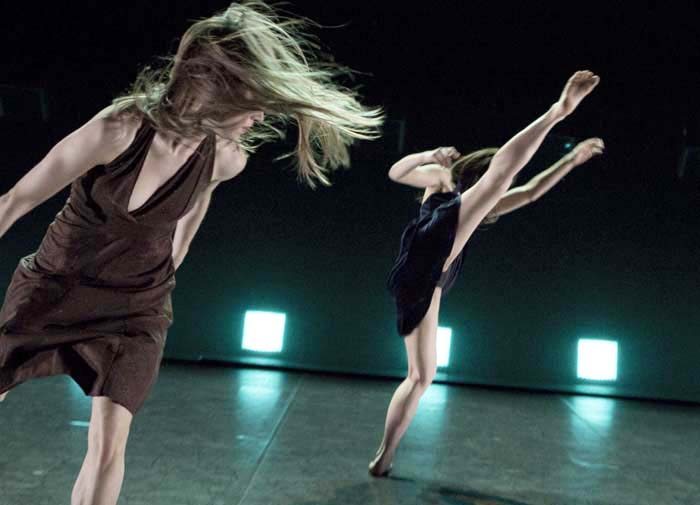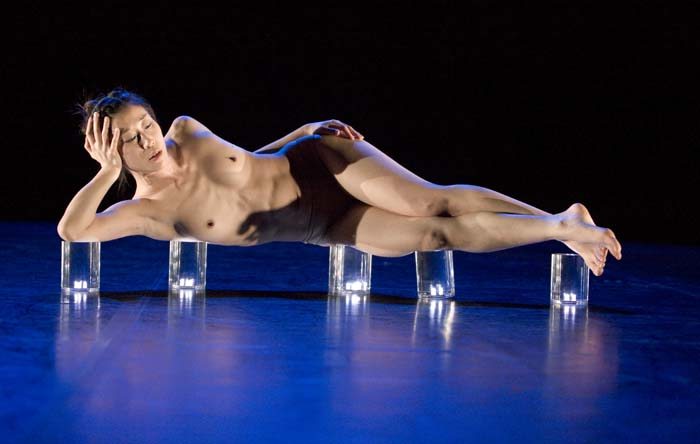How do you say ‘contemporary dance’ in Arabic?
BIPOD, the Beirut international platform of dance

A bipod is a support device that is similar to a tripod or a monopod, but with two legs. It provides significant stability along two axes of motion (side-to-side, and up-and-down). BIPOD also spells out Beirut International Platform of Dance.
For the past seven years now, mid-April in Beirut has been the time of the year when both summer heat and the BIPOD festival begin to strike. A seasonal rendez-vous for contemporary dance lovers and theatre-goers, BIPOD was launched by Lebanese choreographer Omar Rajeh in order to raise the Lebanese audience’s awareness of an art still often considered inaccessible, elitist and weird.
“It’s not odd, it’s contemporary dance,” reminds the slogan. Not only is BIPOD a good occasion for European companies and Arab artists to meet and work together, but it also contributes to create a regional platform with other Arab capitals, namely Amman, Ramallah and Damascus. Artists invited to participate in BIPOD tour around these four cities during a two-week intense programme and are thus able to encounter different audiences, artists and social environments.
“It’s not odd, it’s contemporary dance.”
Marco Cantalupo, choreographer of the Swiss dance company Linga, is in Beirut for the third time. Used to perform internationally and in the region – Linga has been to Tunisia, Egypt, Turkey, Lebanon and Syria before – Mashallah News met with him to know more about his experience as a BIPOD participant.

Do you notice any differences between European audiences and the audience here?
We are used to getting very different feedbacks, partly because we perform in various places abroad. With different audiences you get different reactions, it’s obvious. Last Saturday in Beirut, the room was fully packed and the audience was very enthusiastic. They applauded at the end of each sequence, which was not part of the play’s dramaturgy at all. The applauds kept coming, and they became part of the performance’s own rhythm.
People live in very different ways, hence they express themselves differently too. It’s very normal. When we perform in front of a German audience for instance, you can hear a pin drop during the entire show. So we don’t get feedback until the very end. It doesn’t mean that the applauds won’t be extremely warm and rewarding. Even in Italy, where I am from, there are strong differences between audiences in the north and in the south.
You are about to travel to Amman and Ramallah. What do you expect from this experience?
Last year, we went to Damascus and Amman for the festival, but not to Ramallah. So we’re very excited to go and discover this city. Unfortunately, Damascus has been cancelled this year for obvious reasons. It’s interesting to perform in three different places during one week, because each country has its own issues and limits in terms of morals. In Damascus last year, they were very worried about the shorts lengths of our dancers! So we tried to avoid bare arms and bare legs as much as possible: it was a whole negotiation process.
In Tunisia and Egypt, where we had been performing a few years back, we faced the same kind of issue. In Beirut, we have the feeling that it’s much freer, at least in terms of nakedness. The Swiss embassy though, inquired about our show when we arrived. They wanted to know what kind of religious audiences it was for.
What do you think about regional initiatives like BIPOD?
Omar did a really good work. It definitely helped opening up the mindsets here in Beirut. Now, there are much less barriers and no censorship. In our company where no one is Swiss – I’m Italian, my wife is Polish, and we work with Japanese, Greek and Spanish dancers – we are used to go beyond the linguistic barriers. This is what dance is about, really. What would be great now, is to reach beyond the regular cultural-elitist audience that we find in Beirut. I met with upper class people who had never heard about BIPOD before. It would be interesting to mobilise the bourgeois circles more for this kind of event, so we don’t always see the same pool of people.
But now, things are happening here thanks to BIPOD. We’ve been teaching dance classes for the workshop Takween, also initiated by Omar Rajeh’s company Maqamat, and the mix of dancers there was really interesting. Some were coming from the region, others from France or the US, but they somewhat had links to Beirut – whether they had gotten married here or were just living here for a while – and the work we did benefited from these different influences and different ways of using our bodies.







